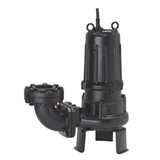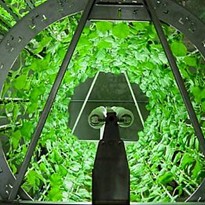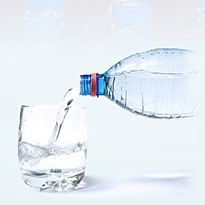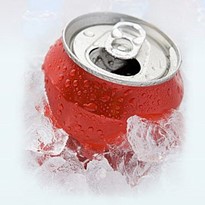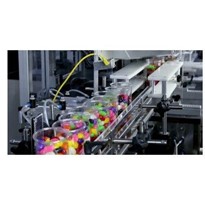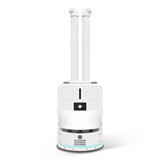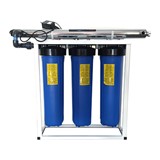UV kills all known microorganisms, including bacteria, viruses, yeasts and moulds (and their spores). It is a low maintenance, environmentally friendly technology which eliminates the need for chemical treatment while ensuring high levels of disinfection.
Benefits of UV Disinfection
UV disinfection has many advantages over alternative methods of wastewater treatment. Unlike chemical treatment, UV does not introduce toxins or residues as disinfection by-products. It can be used for primary disinfection or as a back-up for other wastewater treatment methods such as filtration. As UV has no residual effect, the best position is immediately prior to the point of use. This ensures incoming microbiological contaminants are destroyed and there is a minimal chance of post-treatment contamination.
UV Applications in the Food and Beverage Industries
Wash/rinse water
Using UV to disinfect the water used to wash process equipment, work surfaces or produce can dramatically decrease contamination, increasing shelf life. UV also reduces the amount of chlorine needed to disinfect rinse and wash water.
CIP (Clean-in-Place) rinse water
It is essential that the CIP final rinse water used to flush out foreign matter and disinfecting solutions is microbiologically safe. Fully automated UV disinfection systems can be integrated with CIP rinse cycles to ensure final rinse water does not reintroduce microbiological contaminants.
Filter disinfection
Stored reverse osmosis (RO) and granular activated carbon (GAC) filters can be a breeding ground for bacteria. UV is an effective way of disinfecting both stored RO and GAC filtered water and has been used in the process industries for many years.
Dechlorination
GAC filters are also often used to dechlorinate process water, removing the 'off' flavours often associated with chlorine disinfection, meaning the flavour of the final product remains untainted and free from unwanted flavours or odours. Placing UV systems ahead of GAC filters used for dechlorination improves the performance of the filters and results in longer carbon runs, so decreasing operating costs.
Effluent
Increasingly, food and beverage processors are caught between conflicting sets of regulations – while food hygiene regulations in many countries require increased use of water to rinse produce and process equipment, environmental regulations are limiting the amount of fresh water that a plant can consume. With only so much fresh water coming in, plants are forced to reduce capacity in order to meet these conflicting requirements.
By reusing disinfected wastewater in non-contact applications like chillers and cooling towers, more fresh water can be devoted to washing and processing. UV systems can be used in conjunction with other waste treatment processes to disinfect wastewater without chemicals, making it fit to use again. By using this low-maintenance technology, plant production capacity can be increased and hazardous chemicals are eliminated.
Environmental benefits
While reusing wastewater means a dramatic reduction in discharges to watercourses, any effluent that does have to be discharged can also be disinfected with UV to meet with local environmental regulations.
Sierra Nevada Brewing Company, California
The Sierra Nevada Brewing Company in California is using Hanovia UV technology as part of its water reclamation project. In this application, the water used for cleaning bottles and kegs in the brewery is disinfected and reused for landscape irrigation. UV is also used for processing applications such as de-chlorination, de-aeration and ozone destruction in the brewery.
Conclusion
Designed to meet the stringent requirements of the food industry, today's UV disinfection systems are perfect for wastewater treatment. Not only do they help reduce wastage, they also reduce costs by minimising reliance of costly chemicals such as chlorine.
UV systems can usually be integrated straight into process systems with little disruption to plant operations. Maintenance requirements are minimal – most UV lamps these days only need replacing once a year, an easy operation which can be carried out by on-site personnel. Automatic internal wipers also keep the UV lamps clean, ensuring optimum UV output at all times – especially important when treating industrial wastewater.
About Hanovia
Based in the United Kingdom, with a worldwide distributor network, Hanovia is a world leader in UV disinfection technology for industrial applications. The company recently celebrated its 90th anniversary. From its early days manufacturing UV lamps to treat skin conditions to today’s validated, performance qualified UV water treatment systems, Hanovia has always been a technology leader and at the at the forefront of UV innovation. Hanovia is a subsidiary of Halma plc.
Hanovia UV systems are distributed in Australia by Fluidquip Australia.




